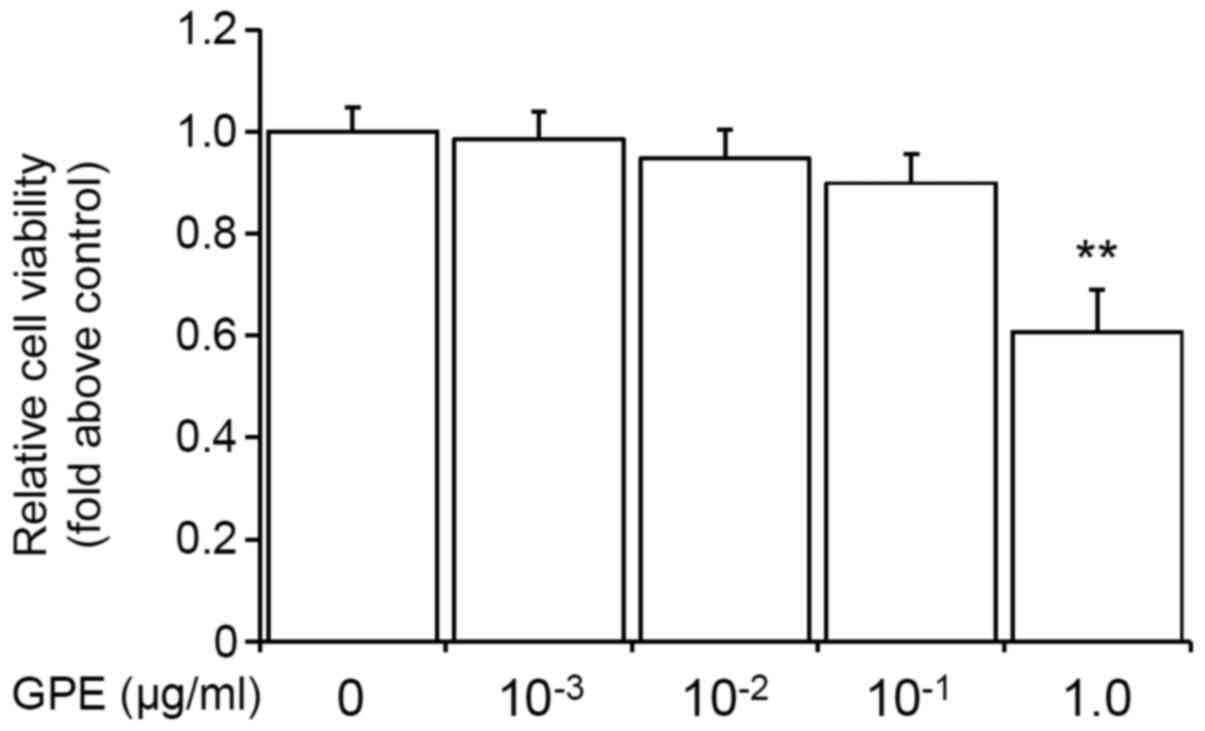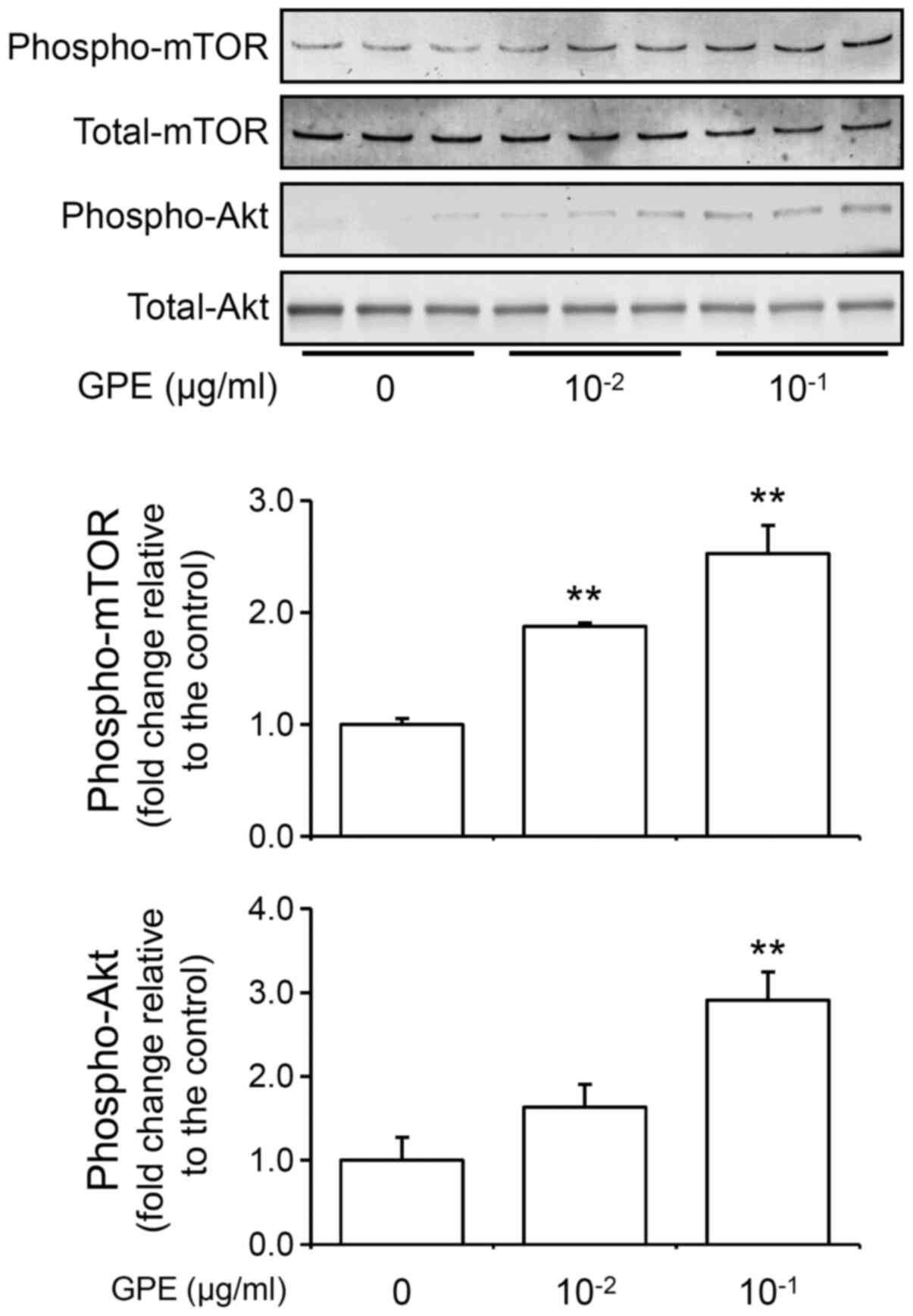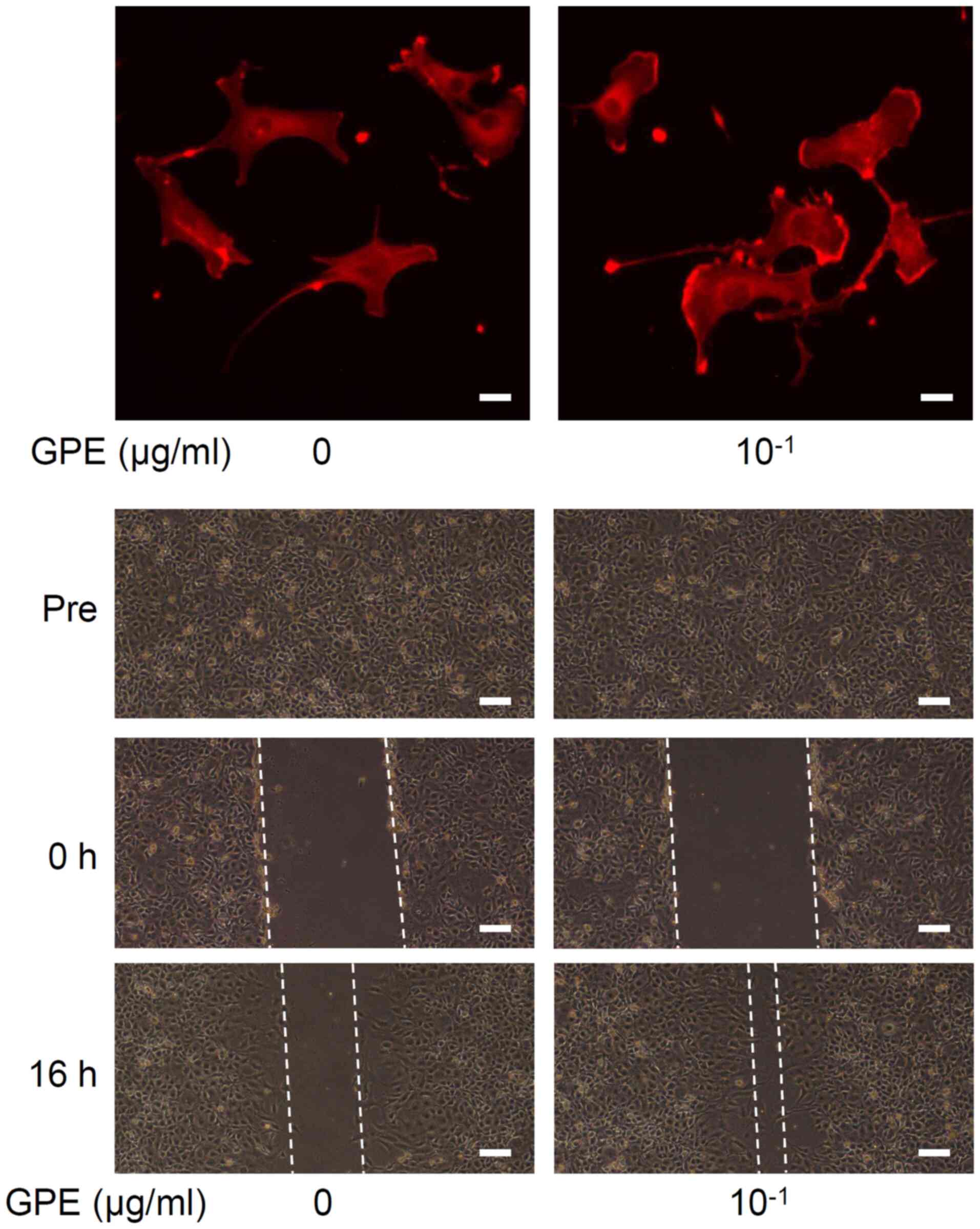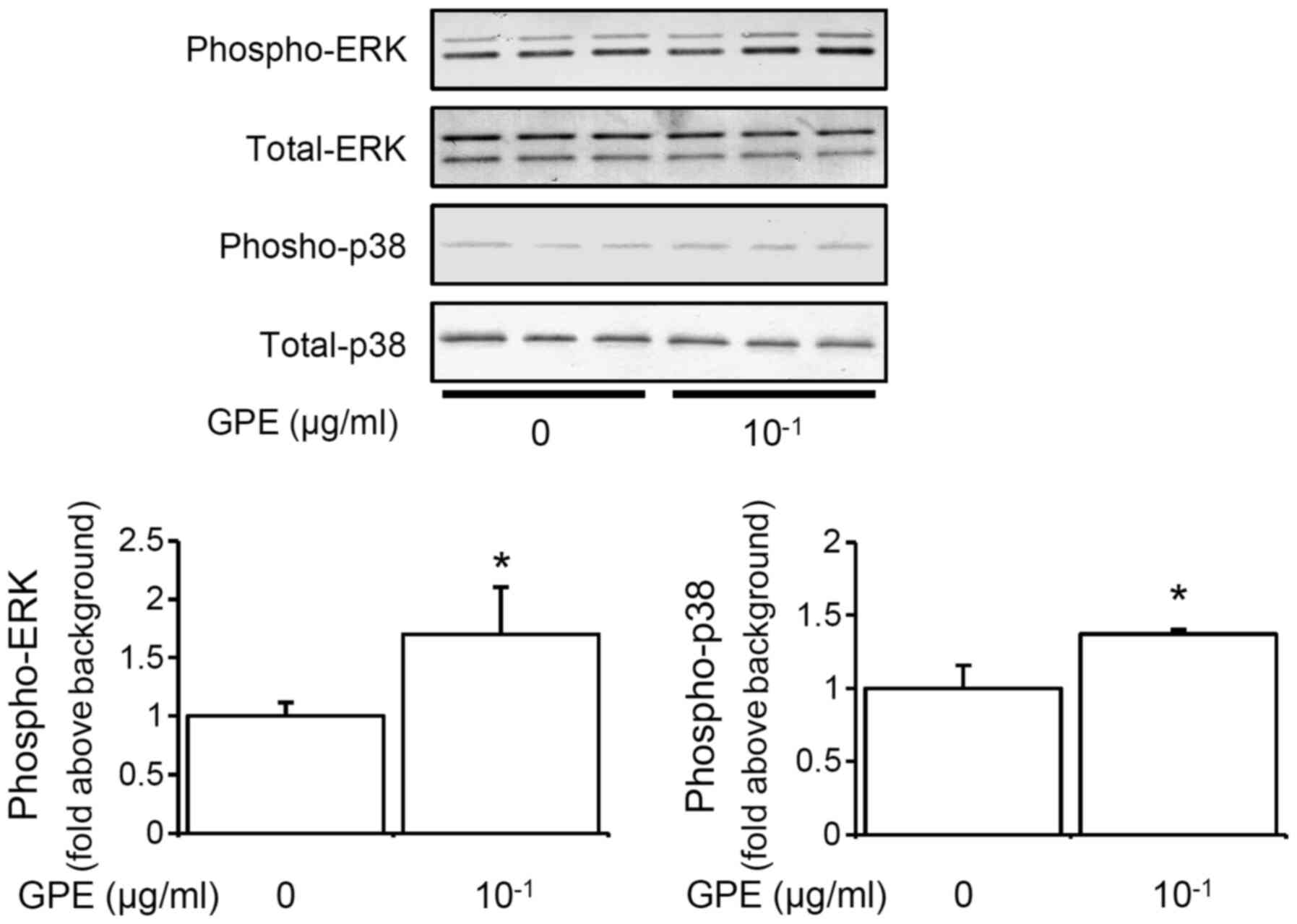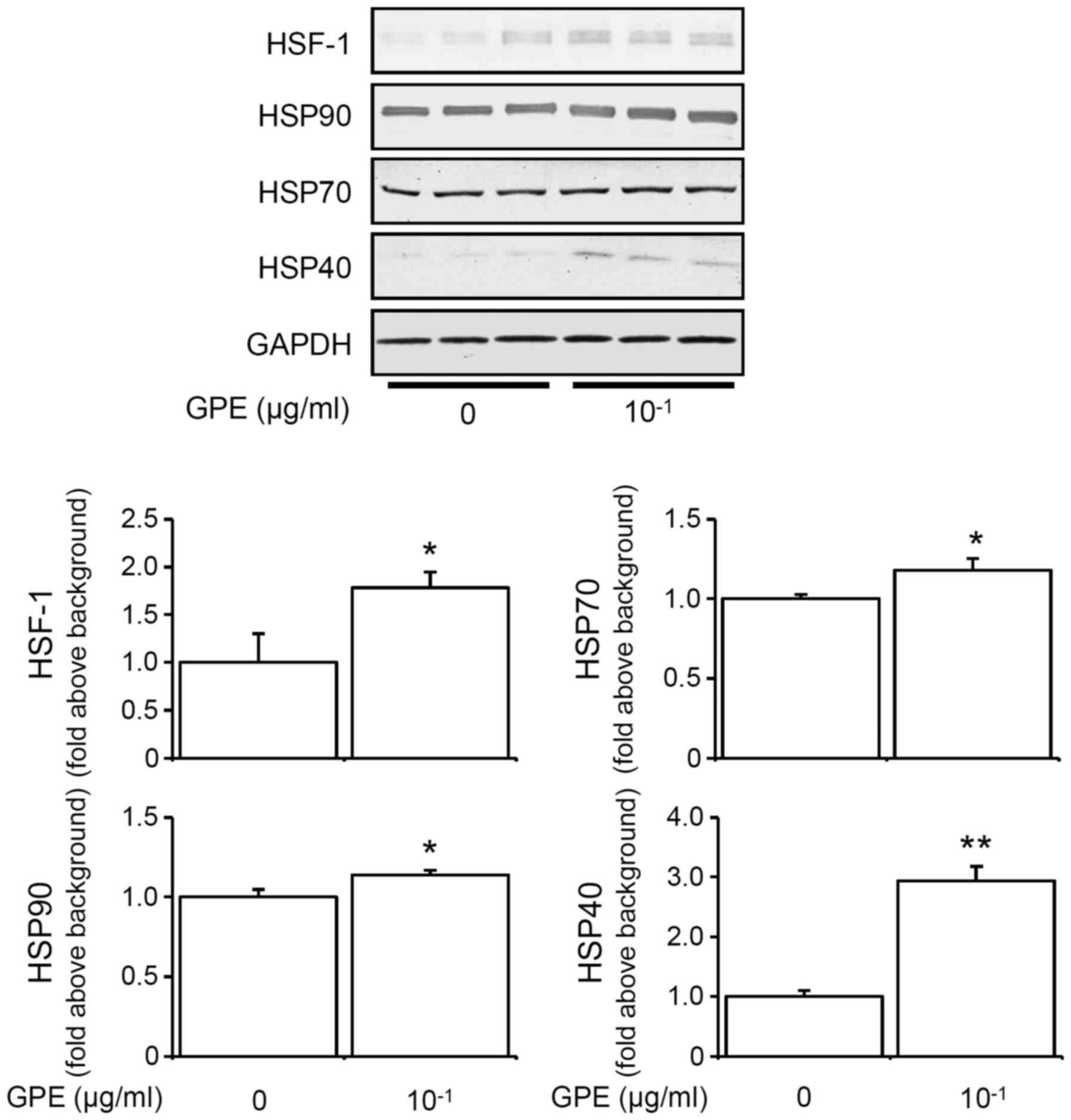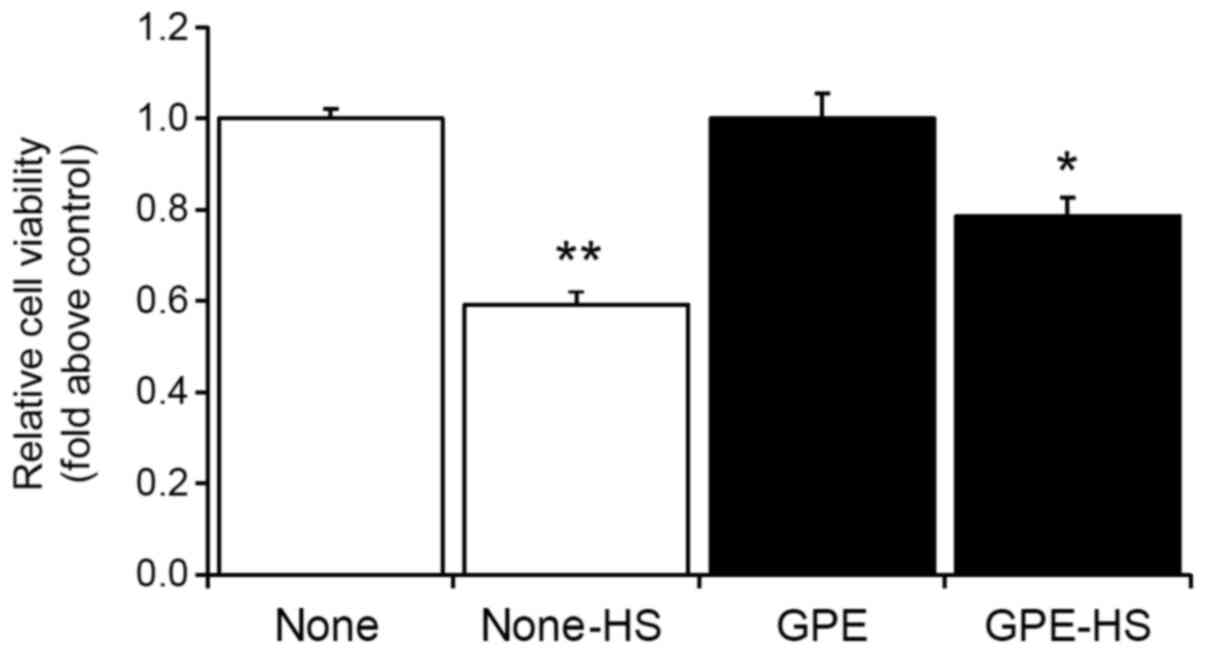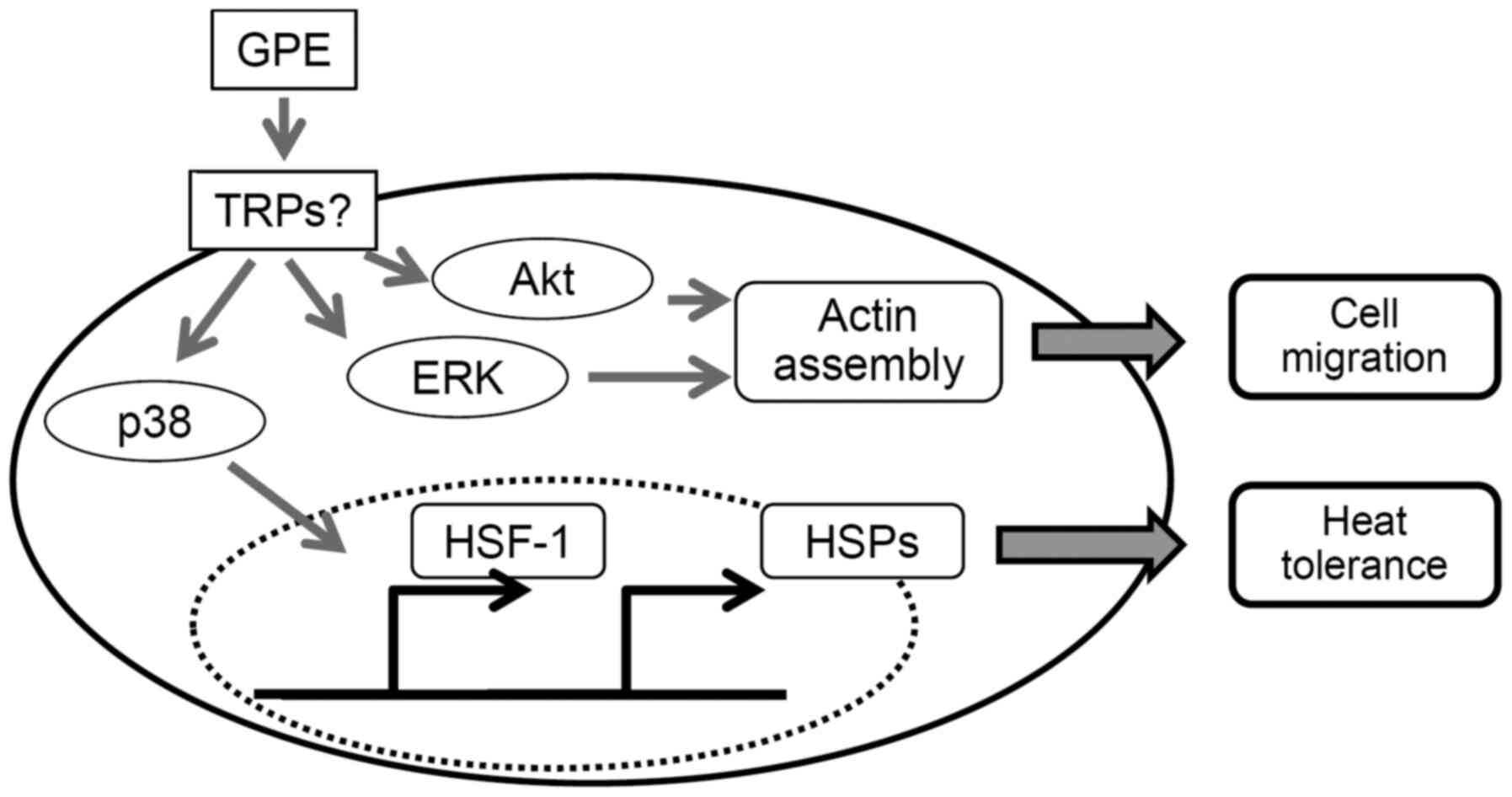|
1
|
Ali BH, Blunden G, Tanira MO and Nemmar A:
Some phytochemical, pharmacological and toxicological properties of
ginger (Zingiber officinale Roscoe): A review of recent
research. Food Chem Toxicol. 46:409–420. 2008. View Article : Google Scholar : PubMed/NCBI
|
|
2
|
McParlin C, O'Donnell A, Robson SC, Beyer
F, Moloney E, Bryant A, Bradley J, Muirhead CR, Nelson-Piercy C,
Newbury-Birch D, et al: Treatments for hyperemesis gravidarum and
nausea and vomiting in pregnancy: A systematic review. JAMA.
316:1392–1401. 2016. View Article : Google Scholar : PubMed/NCBI
|
|
3
|
Tao Y, Li W, Liang W and Van Breemen RB:
Identification and quantification of gingerols and related
compounds in ginger dietary supplements using high-performance
liquid chromatography-tandem mass spectrometry. J Agric Food Chem.
57:10014–10021. 2009. View Article : Google Scholar : PubMed/NCBI
|
|
4
|
Yu Y, Zick S, Li X, Zou P, Wright B and
Sun D: Examination of the pharmacokinetics of active ingredients of
ginger in humans. AAPS J. 13:417–426. 2011. View Article : Google Scholar : PubMed/NCBI
|
|
5
|
Pertz HH, Lehmann J, Roth-Ehrang R and Elz
S: Effects of ginger constituents on the gastrointestinal tract:
Role of cholinergic M3 and serotonergic 5-HT3 and 5-HT4 receptors.
Planta Med. 77:973–978. 2011. View Article : Google Scholar : PubMed/NCBI
|
|
6
|
Miyano K, Eto M, Hitomi S, Matsumoto T,
Hasegawa S, Hirano A, Nagabuchi K, Asai N, Uzu M, Nonaka M, et al:
The Japanese herbal medicine Hangeshashinto enhances oral
keratinocyte migration to facilitate healing of
chemotherapy-induced oral ulcerative mucositis. Sci Rep.
10:6252020. View Article : Google Scholar : PubMed/NCBI
|
|
7
|
Dedov VN, Tran VH, Duke CC, Connor M,
Christie MJ, Mandadi S and Roufogalis BD: Gingerols: A novel class
of vanilloid receptor (VR1) agonists. Br J Pharmacol. 137:793–798.
2002. View Article : Google Scholar : PubMed/NCBI
|
|
8
|
Kim YS, Hong CS, Lee SW, Nam JH and Kim
BJ: Effects of ginger and its pungent constituents on transient
receptor potential channels. Int J Mol Med. 38:1905–1914. 2016.
View Article : Google Scholar : PubMed/NCBI
|
|
9
|
Yin Y, Dong Y, Vu S, Yang F, Yarov-Yarovoy
V, Tian Y and Zheng J: Structural mechanisms underlying activation
of TRPV1 channels by pungent compounds in gingers. Br J Pharmacol.
176:3364–3377. 2019.PubMed/NCBI
|
|
10
|
Bandell M, Macpherson LJ and Patapoutian
A: From chills to chilis: Mechanisms for thermosensation and
chemesthesis via thermoTRPs. Curr Opin Neurobiol. 17:490–497. 2007.
View Article : Google Scholar : PubMed/NCBI
|
|
11
|
Venkatachalam K and Montell C: TRP
channels. Annu Rev Biochem. 76:387–417. 2007. View Article : Google Scholar : PubMed/NCBI
|
|
12
|
Sugimoto N, Katakura M, Matsuzaki K,
Nakamura H, Yachie A and Shido O: Capsaicin partially mimics heat
in mouse fibroblast cells in vitro. Naunyn Schmiedebergs Arch
Pharmacol. 390:281–289. 2017. View Article : Google Scholar : PubMed/NCBI
|
|
13
|
Sugimoto N, Matsuzaki K, Katakura M,
Nakamura H, Ueda Y, Yachie A and Shido O: Heat attenuates
sensitivity of mammalian cells to capsaicin. J Biochem Mol Toxicol.
33:e222882019. View Article : Google Scholar : PubMed/NCBI
|
|
14
|
Sugimoto N, Shido O, Matsuzaki K, Katakura
M, Hitomi Y, Tanaka M, Sawaki T, Fujita Y, Kawanami T, Masaki Y, et
al: Long-term heat exposure prevents hypoxia-induced apoptosis in
mouse fibroblast cells. Cell Biochem Biophys. 70:301–307. 2014.
View Article : Google Scholar : PubMed/NCBI
|
|
15
|
Sugimoto N, Shido O, Matsuzaki K,
Ohno-Shosaku T, Hitomi Y, Tanaka M, Sawaki T, Fujita Y, Kawanami T,
Masaki Y, et al: Cellular heat acclimation regulates cell growth,
cell morphology, mitogen-activated protein kinase activation, and
expression of aquaporins in mouse fibroblast cells. Cell Physiol
Biochem. 30:450–457. 2012. View Article : Google Scholar : PubMed/NCBI
|
|
16
|
Leu H, Sugimoto N, Shimizu M, Toma T, Wada
T, Ohta K and Yachie A: Tumor necrosis factor-α modifies the
effects of Shiga toxin on glial cells. Int Immunopharmacol.
38:139–143. 2016. View Article : Google Scholar : PubMed/NCBI
|
|
17
|
Sugimoto N, Takuwa N, Yoshioka K and
Takuwa Y: Rho-dependent, Rho kinase-independent inhibitory
regulation of Rac and cell migration by LPA1 receptor in
Gi-inactivated CHO cells. Exp Cell Res. 312:1899–1908. 2006.
View Article : Google Scholar : PubMed/NCBI
|
|
18
|
Akimoto M, Iizuka M, Kanematsu R, Yoshida
M and Takenaga K: Anticancer effect of ginger extract against
pancreatic cancer cells mainly through reactive oxygen
species-mediated autotic cell death. PLoS One. 10:e01266052015.
View Article : Google Scholar : PubMed/NCBI
|
|
19
|
Kotowski U, Kadletz L, Schneider S, Foki
E, Schmid R, Seemann R, Thurnher D and Heiduschka G: 6-shogaol
induces apoptosis and enhances radiosensitivity in head and neck
squamous cell carcinoma cell lines. Phytother Res. 32:340–347.
2018. View
Article : Google Scholar : PubMed/NCBI
|
|
20
|
Yao C, Oh JH, Oh IG, Park CH and Chung JH:
[6]-Shogaol inhibits melanogenesis in B16 mouse melanoma cells
through activation of the ERK pathway. Acta Pharmacol Sin.
34:289–294. 2013. View Article : Google Scholar : PubMed/NCBI
|
|
21
|
Ueda Y, Ii T, Aono Y, Sugimoto N, Shinji
S, Yoshida H and Sato M: Membrane dynamics induced by a
phosphatidylinositol 3,4,5-trisphosphate optogenetic tool. Anal
Sci. 35:57–63. 2019. View Article : Google Scholar : PubMed/NCBI
|
|
22
|
Le Clainche C and Carlier MF: Regulation
of actin assembly associated with protrusion and adhesion in cell
migration. Physiol Rev. 88:489–513. 2008. View Article : Google Scholar : PubMed/NCBI
|
|
23
|
Matozaki M, Saito Y, Yasutake R, Munira S,
Kaibori Y, Yukawa A, Tada M and Nakayama Y: Involvement of Stat3
phosphorylation in mild heat shock-induced thermotolerance. Exp
Cell Res. 377:67–74. 2019. View Article : Google Scholar : PubMed/NCBI
|
|
24
|
Morotomi T, Kitamura C, Okinaga T,
Nishihara T, Sakagami R and Anan H: Continuous fever-range heat
stress induces thermotolerance in odontoblast-lineage cells. Arch
Oral Biol. 59:741–748. 2014. View Article : Google Scholar : PubMed/NCBI
|
|
25
|
Miyamoto M, Matsuzaki K, Katakura M, Hara
T, Tanabe Y and Shido O: Oral intake of encapsulated dried ginger
root powder hardly affects human thermoregulatory function, but
appears to facilitate fat utilization. Int J Biometeorol.
59:1461–1474. 2015. View Article : Google Scholar : PubMed/NCBI
|
|
26
|
Sugimoto N, Katakura M, Matsuzaki K,
Sumiyoshi E, Yachie A and Shido O: Chronic administration of
theobromine inhibits mTOR signal in rats. Basic Clin Pharmacol
Toxicol. 124:575–581. 2019. View Article : Google Scholar : PubMed/NCBI
|
|
27
|
Qi Y, Liang X, Dai F, Guan H, Sun J and
Yao W: RhoA/ROCK pathway activation is regulated by AT1 receptor
and participates in smooth muscle migration and dedifferentiation
via promoting actin cytoskeleton polymerization. Int J Mol Sci.
21:53982020. View Article : Google Scholar
|
|
28
|
Katoh M and Katoh M: Molecular genetics
and targeted therapy of WNT-related human diseases (Review). Int J
Mol Med. 40:587–606. 2017.PubMed/NCBI
|
|
29
|
Manning BD and Toker A: AKT/PKB signaling:
Navigating the network. Cell. 169:381–405. 2017. View Article : Google Scholar : PubMed/NCBI
|
|
30
|
Shi X, Wang J, Lei Y, Cong C, Tan D and
Zhou X: Research progress on the PI3K/AKT signaling pathway in
gynecological cancer (Review). Mol Med Rep. 19:4529–4535.
2019.PubMed/NCBI
|
|
31
|
Hossain ME, Matsuzaki K, Katakura M,
Sugimoto N, Mamun AA, Islam R, Hashimoto M and Shido O: Direct
exposure to mild heat promotes proliferation and neuronal
differentiation of neural stem/progenitor cells in vitro. PLoS One.
12:e01903562017. View Article : Google Scholar : PubMed/NCBI
|
|
32
|
Sun Y, Liu WZ, Liu T, Feng X, Yang N and
Zhou HF: Signaling pathway of MAPK/ERK in cell proliferation,
differentiation, migration, senescence and apoptosis. J Recept
Signal Transduct Res. 35:600–604. 2015. View Article : Google Scholar : PubMed/NCBI
|
|
33
|
Gong X, Luo T, Deng P, Liu Z, Xiu J, Shi H
and Jiang Y: Stress-induced interaction between p38 MAPK and HSP70.
Biochem Biophys Res Commun. 425:357–362. 2012. View Article : Google Scholar : PubMed/NCBI
|
|
34
|
Westerheide SD, Raynes R, Powell C, Xue B
and Uversky VN: HSF transcription factor family, heat shock
response, and protein intrinsic disorder. Curr Protein Pept Sci.
13:86–103. 2012. View Article : Google Scholar : PubMed/NCBI
|
|
35
|
Sugimoto N, Matsuzaki K, Ishibashi H,
Tanaka M, Sawaki T, Fujita Y, Kawanami T, Masaki Y, Okazaki T,
Sekine J, et al: Upregulation of aquaporin expression in the
salivary glands of heat-acclimated rats. Sci Rep. 3:17632013.
View Article : Google Scholar : PubMed/NCBI
|
|
36
|
Creagh EM, Sheehan D and Cotter TG: Heat
shock proteins-modulators of apoptosis in tumour cells. Leukemia.
4:1161–1173. 2000. View Article : Google Scholar
|
|
37
|
Horowitz M and Assadi H: Heat
acclimation-mediated cross-tolerance in cardioprotection: Do HSP70
and HIF-1alpha play a role? Ann N Y Acad Sci. 1188:199–206. 2010.
View Article : Google Scholar : PubMed/NCBI
|















